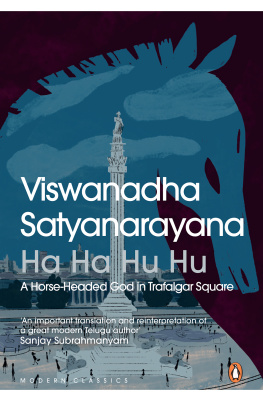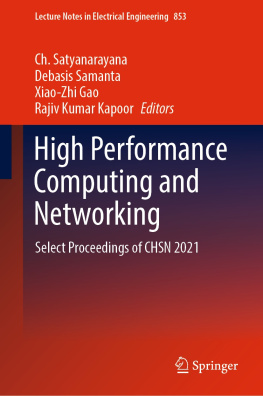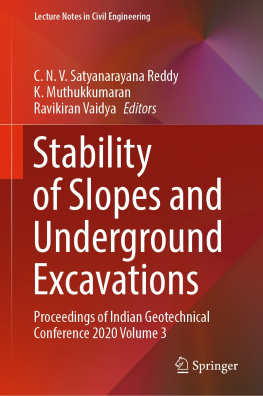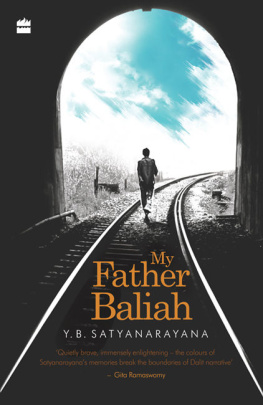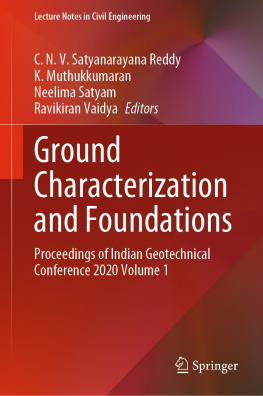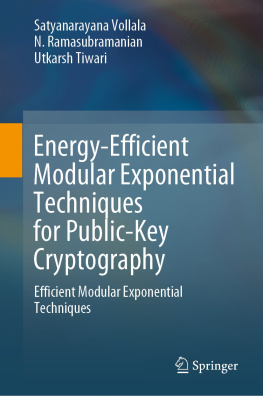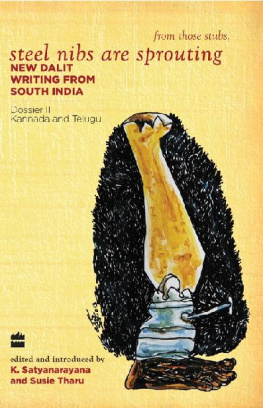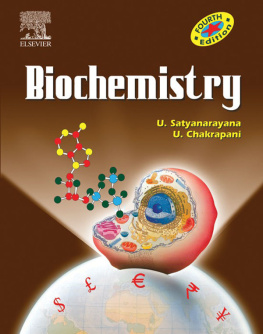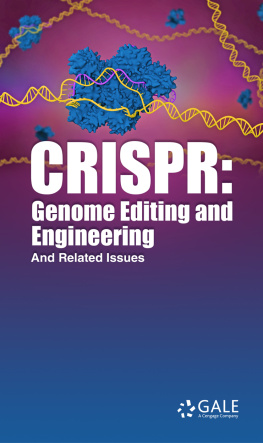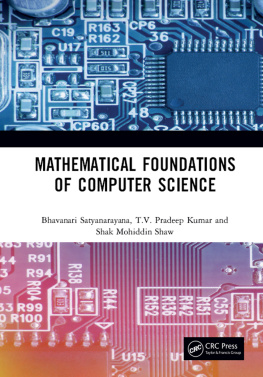V Satyanarayana - Ha Ha Hu Hu
Here you can read online V Satyanarayana - Ha Ha Hu Hu full text of the book (entire story) in english for free. Download pdf and epub, get meaning, cover and reviews about this ebook. year: 2018, publisher: Penguin Random House India Private Limited, genre: Detective and thriller. Description of the work, (preface) as well as reviews are available. Best literature library LitArk.com created for fans of good reading and offers a wide selection of genres:
Romance novel
Science fiction
Adventure
Detective
Science
History
Home and family
Prose
Art
Politics
Computer
Non-fiction
Religion
Business
Children
Humor
Choose a favorite category and find really read worthwhile books. Enjoy immersion in the world of imagination, feel the emotions of the characters or learn something new for yourself, make an fascinating discovery.
- Book:Ha Ha Hu Hu
- Author:
- Publisher:Penguin Random House India Private Limited
- Genre:
- Year:2018
- Rating:3 / 5
- Favourites:Add to favourites
- Your mark:
- 60
- 1
- 2
- 3
- 4
- 5
Ha Ha Hu Hu: summary, description and annotation
We offer to read an annotation, description, summary or preface (depends on what the author of the book "Ha Ha Hu Hu" wrote himself). If you haven't found the necessary information about the book — write in the comments, we will try to find it.
Ha Ha Hu Hu — read online for free the complete book (whole text) full work
Below is the text of the book, divided by pages. System saving the place of the last page read, allows you to conveniently read the book "Ha Ha Hu Hu" online for free, without having to search again every time where you left off. Put a bookmark, and you can go to the page where you finished reading at any time.
Font size:
Interval:
Bookmark:




PENGUIN BOOKS

PENGUIN BOOKS
PENGUIN MODERN CLASSICS
VISWANADHA SATYANARAYANA (18951976) is regarded as one of the most important writers and poets of the Telugu canon. He was the first Telugu writer to win the Jnanpith Award in 1971. He was also awarded the Padma Bhushan.
VELCHERU NARAYANA RAO is a renowned scholar and translator. His previous translations include, among many others, Gurajada Apparaos Girls for Sale and Chasos Dolls Wedding (with David Shulman), both for Penguin Classics.
The short works translated and presented in this book are small yet sparkling gems, the works of an important, highly prolific and original author in twentieth-century Telugu, Viswanadha Satyanarayana. In turn, it takes a bold scholar like Velcheru Narayana Rao to do justice to the complex, and subtle, vision of a maverick like Satyanarayana. These works, written in a droll and ironic tone, should be widely read, and help to bring Satyanarayana the large audience that he truly merits. SANJAY SUBRAHMANYAM
For
Venkateswara Rao Veluri
and Shanti Veluri,
remembering decades of friendship
Colonialism came to India with a complex interlocking of Western modernity and British political control. The Enlightenment ideas of rational thinking, egalitarianism, linear history and the grand knowledge of science that conquers nature to enhance human happinessall came in the wake of colonialism, giving Western civilization the look of a boon conferred upon India by the colonial master. Nationalists rejected colonial political control but were unwilling to give up the modernity that came with it. This position is best presented by Dipesh Chakrabarty:
Concepts such as citizenship, the state, civil society, public sphere, human rights, equality before the law, the individual, distinctions between public and private, the idea of the subject, democracy, popular sovereignty, social justice, scientific rationality, and so on all bear the burden of European thought and history. One simply cannot think of political modernity without these and other related concepts that found a climactic form in the course of the European Enlightenment and the nineteenth century.
Writers in India during the colonial period who were largely nationalistic were opposed to British governance, but were reluctant to reject the modern literary culture that entered the Indian literary world via the English language. In all of Indias literary languages a new divide developed under the influence of the English languagea divide baptized by its promoters with such words as dhunika, or navya, which broadly indicated an awareness of a new beginning, a modernity. Acceptance of the modern also inaugurated a defiance of literary practices that had held sway until then. Modern poets wrote on contemporary themes, with a liberal agenda. They were against caste hierarchies, superstitious rituals of religion, Brahmin superiority; some of them were clearly in favour of class war and revolution. There were very few who did not buy into a social reformist agenda, which was largely considered a mark of modernity. From Bankim Chandra Chattopadhyay to Tripuraneni Gopichand, from Rabindranath Tagore to Sumitranandan Pant, from Subrhamanya Bharati to Sri Sri, all major modern writers and poets followed this general trend. Viswanadha Satyanarayana in Telugu, not well known outside India, is one among a minority who does not belong in this group.
Born in 1895 in a Vaidiki Brahmin family, Satyanarayana received his early education in village schools called street schools. His village education gave him roots in a local culture of street singers, dancers, Purana performerssingers from castes now called Dalitsitinerant tellers of religious stories and oral poets. His elder sister sang songs for him, told folk tales, and taught stories from the Ramayana and the Mahabharata, and other old texts. The temple carnival that occurred annually attracted actors, musicians who played various instruments, clowns, wrestlers, magicians and performers who took different guises. In his village, people of all castes used to call each other by kinship termsbrother, sister, uncle and auntdespite divisions imposed by caste regulations. According to Satyanarayanas recollection, he grew up in a certain idyllic environment of a large joint family that shared love and affection, songs and stories. As an innocent young boy, he internalized the apparent love in the village, perhaps unrealistically free from the strife and struggle, conflict and corruption that only an adult could see.
By the time Satyanarayana was eleven, his father, who was a little too generous for his own good, gave away most of his ancestral property. He decided that his son should get an English education to make a living, and the family moved to the nearby town of Machilipatnam. When he saw that his son was writing Telugu poetry, he commanded him not to waste his time in such futile activities. Satyanarayana continued to write poetry anyway, though he tore up thousands of his early verses. Too poor to buy books for himself, he sat and read at a bookstore. The owner had a kind heart and allowed him to read the books he wanted, and even borrow them overnight. While pursuing his English education, Satyanarayana learnt traditional sastra texts from various individual scholars. He learnt Tarka (logic) and Vykaraa (grammar), and Vedanta (philosophy) from the great scholars of the time, Kambhampati Ramamurti Sastri, Parimi Ramanarasimha Sastri and Kanukolanu Trivikramarama Raoscholars whose names are mostly forgotten now. For Telugu poetry, Satyanarayana became a student of the great poet Chellapilla Venkata Sastry (18701950).
By the 1920s Satyanarayana was recognized as a major voice in Telugu literature. His turns of phrase and his inventiveness in Sanskrit compound formation attracted the attention of many readers and gave him a place among noted writers. He was nationalistic and patriotic in his early poems, singing the greatness of past Telugu kings and empire builders. The topics were predictable, but his phrases were striking and distinguished him from a host of other patriotic poets. In the 1940s, when every modern writer considered the Ramayana a text only suitable for old people who read it for religious merit, Satyanarayana began to compose a six-volume Ramayana in defiance of every modern literary convention established by his contemporaries.
While the modern writers spoke of romantic love, elevated the status of women and quoted from Shelley, Keats and Eliot, Satyanarayana spoke of Brahminic dharma, which was in turn closely interconnected in literature with the Indian aesthetics of
Font size:
Interval:
Bookmark:
Similar books «Ha Ha Hu Hu»
Look at similar books to Ha Ha Hu Hu. We have selected literature similar in name and meaning in the hope of providing readers with more options to find new, interesting, not yet read works.
Discussion, reviews of the book Ha Ha Hu Hu and just readers' own opinions. Leave your comments, write what you think about the work, its meaning or the main characters. Specify what exactly you liked and what you didn't like, and why you think so.

